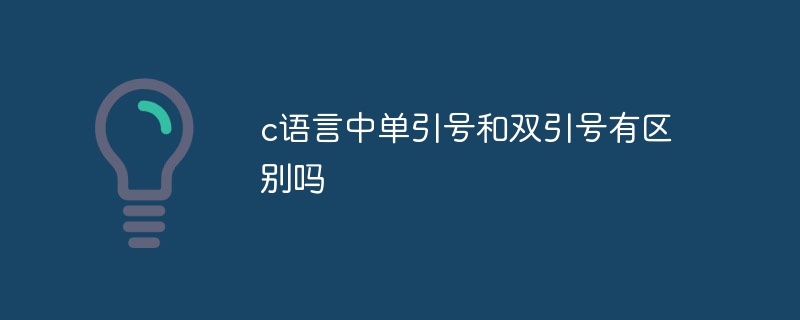
The difference between single and double quotation marks in C language: character constants: single quotation marks represent a single character, and double quotation marks cannot be used. String constants: Double quotes represent strings, single quotes cannot be used. Escape characters: Escape characters take effect within single quotes, but not within double quotes. Nesting: Double quotes can be nested within single quotes and vice versa.

The difference between single quotes and double quotes in C language
Single quotes (') and Double quotes (") are used in character constants and string constants, but there is an important difference between them.
The difference between single quotes and double quotes
char c = 'a'; // 单个字符常量
char *str = "Hello world"; // 字符串常量
printf("%c\n", c); // 输出字符 'a'
printf("%s\n", str); // 输出字符串 "Hello world"Note
In some cases, single quotes and double quotes can be used interchangeably, such as when assigning string literals to char pointers. However, follow the convention of using single quotes in character constants and double quotes in string constants. It's wise.The above is the detailed content of Is there a difference between single quotes and double quotes in C language?. For more information, please follow other related articles on the PHP Chinese website!




